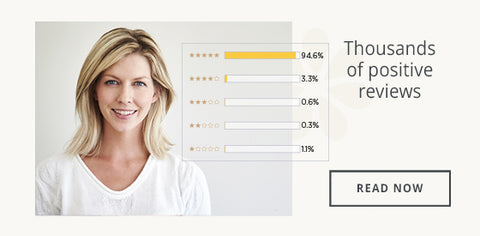
Is It Menopause or Is It “All in Your Head”?
Many women suffer from symptoms of hormonal imbalance which are not classified or explained by modern medicine. If you do not have the typical symptoms of premenstrual syndrome (PMS), peri-menopause or menopause, misdiagnosis can occur and the symptoms are deemed to be “all in your head”.
What happens if you do not fit into these conventional models? What happens if you are experiencing symptoms of hormonal imbalance such as mood swings, irritability, anxiety, irrationality, depression, anger, tension and stress at different times in your cycle? You may not have even recognised it yourself and thought life was just getting too difficult. Probably, you were prescribed anti-depressants or simply told to manage stress more effectively. But this is really a more serious matter you should look into.
Understanding your symptoms
When symptoms cannot be classified in medical terms we begin to question their legitimacy or start searching for other causes. The sad part is that the ones we love the most are those who bear the brunt of this hormonal imbalance. Is it really the underpants left on the floor, the toys scattered through the house or the overly active children making you feel this way? Daily stress is one of the main triggers of hormonal imbalance; however, IT IS NOT what is acutely making you feel this way.
“I have a full-time business, four children and a husband of 19 years. I was giving up on all of them. I had no interest in them or my life.”
Many women (yes you are not alone) suffer from these symptoms at various times in the cycle – some even throughout the entire cycle. The constant mental and emotional distress takes its toll so bad that women literally feel they are losing control. Simple daily tasks become very difficult to accomplish and for a few women, the symptoms can get so overwhelming that their whole life crumbles. As a result, they may experience relationship breakdowns, loss of employment and financial hardships. Who would think a physical health imbalance could create such dire consequences when left untreated?
“Even organising myself to perform the basic tasks of life became impossible for several days of each month. When I am not in control I hate myself – and I was not in control.”
The key to understanding here is that these “life-changing” psychological symptoms have a physical cause - hormonal imbalance. Mental and emotional issues are well-documented symptoms of premenstrual syndrome, perimenopause and menopause. The problem is that conventional medicine often misdiagnoses hormonal imbalance for depression. This is so because there are very few conventional treatments which are effective for the psychological symptoms associated with hormonal imbalance. In fact, the most commonly prescribed treatments are anti-depressants which do not really address the root cause of the problem. Eventually, the symptoms get worse and women are left to deal with increasing hormonal imbalance and even drug dependency.
It must be the hormones
Constant mental and emotional neurosis can have a devastating effect, disrupting all aspects of family, work, social and personal life. The irony is that the peak incidence of mental and emotional symptoms occurs when women have so much in their hands – raising a family and running a business or building a career.
That is why it is important to differentiate hormonal imbalance from clinical depression as the two conditions have similar symptoms, yet the causes and treatment are very different. The key diagnostic feature of hormonal imbalance, as opposed to depression, is that the symptoms often worsen premenstrually and during ovulation.
The incidence of suicide among women increases by 45% in the week preceding menstruation.
There are many contributing factors to hormonal imbalance; however the most common is a history of synthetic hormone use such as contraceptives and hormone replacement. Excessive alcohol consumption, smoking, high levels of stress, a diet high in simple sugars and processed foods, family history and a sedentary lifestyle can also bring about hormonal imbalance.
Hormonal imbalance often begins with PMS, then women begin to notice changes at ovulation and in the latter part of the menstrual cycle. Eventually, the level of physical, mental and emotional symptoms spread throughout the entire month, with a little bit of relief on the 2nd, 3rd and 4th days of menstruation when the hormone levels are relatively stable.
As opposed to depression, it is important to note that hormonal imbalance can be experienced for only a few days of each cycle. It is only when a woman approaches menopause that she may experience symptoms constantly. Most women suffer from some degree of hormonal imbalance with varying symptoms at different stages in life. The good news is that with the correct approach, all these symptoms can be managed and avoided.
Summary
Hormones have a very real and dramatic impact on your physical and emotional wellbeing. Hormonal imbalance is not a disease, it is an imbalance. Treating it as a disease leads to prescription drugs and a slippery slope of dependence. It is always better to manage natural processes with natural medicines as they balance as opposed to suppressing.
Our unique combination of Happy Hormones, diet and lifestyle advice has been shown to be very effective in managing symptoms relating to menopause. Check our reviews from thousands of women who are now managing their symptoms naturally and improving their overall health.















